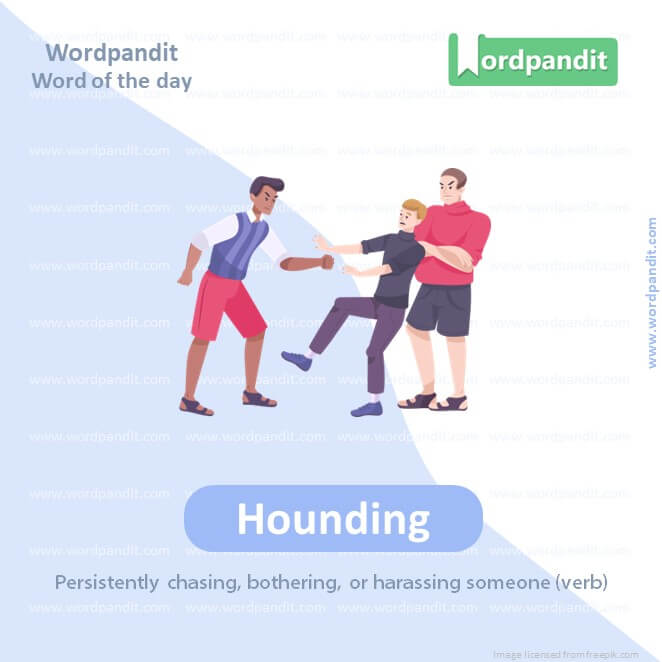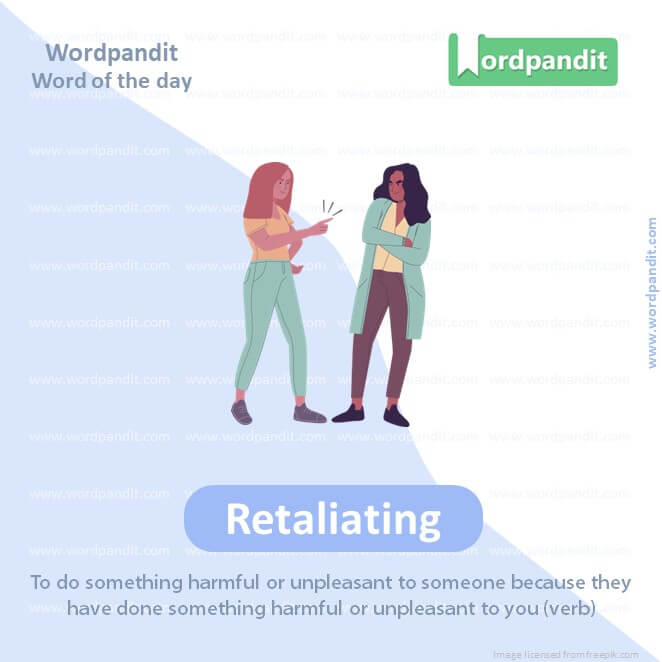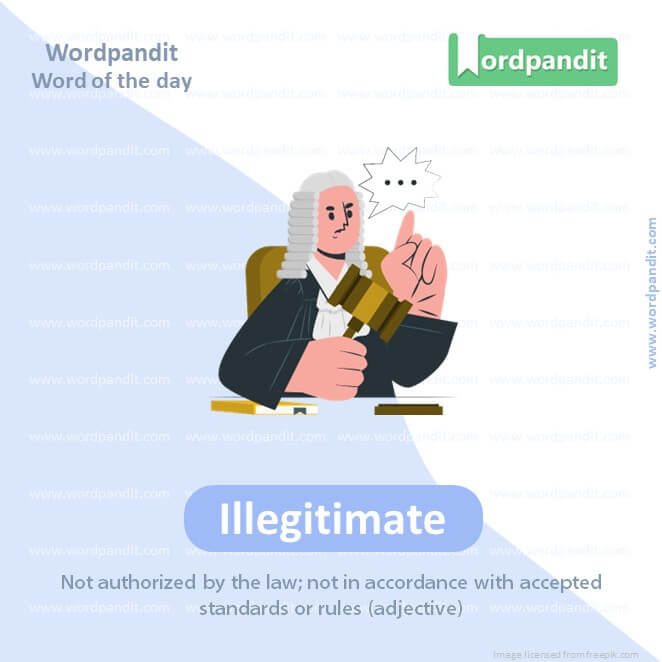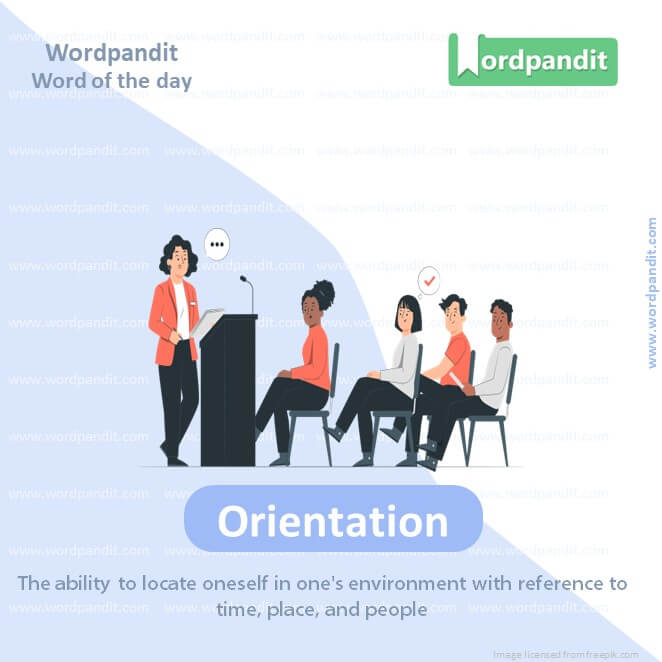Daily Vocabulary Words: List of Daily Used Words in Leading Indian Newspapers
Hi there. Welcome to this special section @ Wordpandit. Our endeavour here is straightforward: highlighting daily vocabulary words that you would come across in leading newspapers in the country. We have included the following newspapers in our selection:
• The Times of India
• The Economic Times
• Hindustan Times
• Mint
• Indian Express
We are putting in extensive work to develop your vocabulary. All you have to do is be regular with this section and check out this post daily. This is your repository of commonly used words; essentially, we are posting a list of daily used words. Hence, this has significant practical application as it teaches you words that are commonly used in leading publications mentioned above.
Visit the website daily to learn words from leading Indian newspapers.

WORD-1: Predecessor
CONTEXT: In a year of elections around the world, here is one where the incumbent president calls his predecessor a Nazi.
SOURCE: Indian Express
EXPLANATORY PARAGRAPH: Imagine you have a new teacher in school, but before them, there was another teacher who taught the class. That teacher who came before is called the “predecessor.” It’s like when you pass a toy car to your friend, and before it was yours, it belonged to someone else. Your friend is now playing with its predecessor.
MEANING: People who held a position or job before someone else; something
that came before another thing in time (Noun).
PRONUNCIATION: PREE-des-uh-ser
SYNONYMS: Precursor, forerunner, antecedent, ancestor, predecessor
USAGE EXAMPLES:
1. The new CEO aimed to build on the successes of her predecessor.
2. The latest smartphone model is much more advanced than its predecessor.
3. The current president’s policies are vastly different from those of his predecessor.
4. The novel’s sequel picks up where its predecessor left off.

WORD-2: Hounding
CONTEXT: The current establishment is hounding the former president with a bunch of criminal cases.
SOURCE: Indian Express
EXPLANATORY PARAGRAPH: Imagine you have a pet dog, and you’re holding a tasty treat in your hand. Your dog follows you everywhere, eagerly waiting for you to give them the treat. That persistent following and begging for the treat is like “hounding.” It’s when someone follows or pursues another person persistently, often in an annoying or aggressive way.
MEANING: Persistently chasing, bothering, or harassing someone (verb).
PRONUNCIATION: HOUN-ding
SYNONYMS: Pestering, badgering, harassing, nagging, pursuing
USAGE EXAMPLES:
1. The paparazzi were hounding the celebrity for photographs.
2. Despite repeated refusals, he kept hounding her for a date.
3. The debt collectors were hounding him for unpaid bills.
4. She felt like reporters were hounding her for comments on the scandal.
WORD-3: Pronunciation
CONTEXT: it was handpicked by the company’s founders for its lively ring and ease in pronunciation.
SOURCE: Times of India
EXPLANATORY PARAGRAPH: Imagine you’re learning to say a new word, and you’re trying hard to get it just right. You listen carefully to someone saying it and then practice saying it yourself. That’s what “pronunciation” is about. It’s how you say words, like when you’re learning to speak a new language or trying to say your friend’s name correctly.
MEANING: The way in which a word is pronounced or spoken, including the sounds and stress patterns (noun).
PRONUNCIATION: pruh-nuhn-see-EY-shuhn
SYNONYMS: Articulation, enunciation, accent, intonation, phonetics
USAGE EXAMPLES:
1. She worked on improving her pronunciation by listening to language tapes.
2. The teacher corrected the student’s pronunciation of difficult words.
3. He had a strong Southern pronunciation of certain words.
4. The pronunciation of his name was often misheard by others.

WORD-4: Retaliating
CONTEXT: The Opposition accuses the government of weaponising law to keep the popular former president off the ballot and is retaliating by preparing to impeach the president.
SOURCE: Indian Express
EXPLANATORY PARAGRAPH: Imagine you accidentally step on someone’s foot, and they respond by stepping on yours. That’s “retaliating.” It’s when someone responds to a harmful or negative action by doing something similar back to the person who did it, like hitting someone who hit you first.
MEANING: To do something harmful or unpleasant to someone because they
have done something harmful or unpleasant to you (verb).
PRONUNCIATION: ri-TAL-ee-ey-ting
SYNONYMS: Retaliatory, revengeful, reprisal, counterattack, reciprocate
USAGE EXAMPLES:
1. The country threatened retaliating against any aggression from its neighbors.
2. Instead of apologizing, he retaliated by insulting her.
3. She resisted retaliating against her bullies and chose to ignore them instead.
4. The company retaliated against the competitor’s price cuts by lowering their own prices.

WORD-5: Illegitimate
CONTEXT: The top court has got into the act, but whatever its decision, a large section of the deeply polarised society will see it as illegitimate and politically motivated.
SOURCE: Indian Express
EXPLANATORY PARAGRAPH: Imagine you’re playing a game with rules, but someone decides to change the rules halfway through to make it easier for themselves to win. That’s not fair, right? That’s what “illegitimate” means. It’s when something is not allowed or accepted because it goes against the rules or laws.
MEANING: Not authorized by the law; not in accordance with accepted
standards or rules (adjective)
PRONUNCIATION: ih-li-JIT-uh-mit
SYNONYMS: Unlawful, illegitimate, unauthorized, illegal, improper
USAGE EXAMPLES:
1. The judge ruled that the evidence was illegitimate and could not be used in court.
2. The company was fined for engaging in illegitimate business practices.
3. His claim to the throne was considered illegitimate by many.
4. They protested against the government’s decision as illegitimate.

WORD-6: Orientation
CONTEXT: It routinely passes judgements on not just the broad political orientation of other countries but on the micro trends within them.
SOURCE: Indian Express
EXPLANATORY PARAGRAPH: Imagine you’re in a new school, and on the first day, the teachers show you around the building, pointing out where the classrooms, library, and cafeteria are. That’s called an “orientation.” It’s when you’re introduced to a new place or situation, and someone helps you understand how things work there.
MEANING: The ability to locate oneself in one’s environment with reference to time, place, and people.
PRONUNCIATION: awr-ee-uhn-TEY-shuhn
SYNONYMS: Induction, initiation, familiarization, introduction, acclimatization
USAGE EXAMPLES:
1. The company provides an orientation program for new employees.
2. She attended an orientation session before starting college.
3. The orientation tour helped the new students find their way around campus.
4. The orientation for volunteers explained their roles and responsibilities.
WORD-7: Resonates
CONTEXT: The Chinese social media app TikTok has a name that resonates with the global fanbase of its short video format.
SOURCE: Times of India
EXPLANATORY PARAGRAPH: Imagine you hear a song on the radio, and it reminds you of happy times spent with friends. That feeling of the music connecting with your memories and emotions is what “resonates” means. It’s when something evokes strong feelings or memories and makes a deep impact on you.
MEANING: Evoking a strong emotional response or connection; having a lasting impact (verb).
PRONUNCIATION: REZ-uh-neyts
SYNONYMS: Reverberate, echo, strike a chord, have an impact, linger
USAGE EXAMPLES:
1. The speech resonated with the audience and inspired them to take action.
2. His words resonated deeply with me and stayed in my mind for days.
3. The message of the movie resonated with viewers around the world.
4. The painting’s themes of loneliness and longing resonated with many people.
WORD-8: Embroiled
CONTEXT: Mamata Banerjee’s starting point as talks for Bengal began was reportedly a concession of 2seats to Congress – even as CM herself is embroiled in a new scandal, an attack on ED officers.
SOURCE: Times of India
EXPLANATORY PARAGRAPH: Imagine you’re playing a game of tug-of-war, and suddenly, you find yourself caught in the middle of a huge knot of ropes. You’re tangled up and can’t move. That’s what “embroiled” means. It’s when someone becomes deeply involved in a difficult or complicated situation, like being stuck in the middle of an argument between friends.
MEANING: Involved in a difficult, complicated, or contentious situation; deeply entangled or immersed (adjective/verb).
PRONUNCIATION: em-BROYLD
SYNONYMS: Entangled, enmeshed, mired, involved, ensnared
USAGE EXAMPLES:
1. The company became embroiled in a legal dispute with its competitors.
2. She found herself embroiled in a heated debate with her colleagues.
3. The politician became embroiled in scandal after allegations of corruption.
4. He was embroiled in a conflict between his two best friends.
WORD-9: Transgressions
CONTEXT: Washington punishes foreign governments for presumed transgressions against democratic norms. But what about American democracy?
SOURCE: Times of India
EXPLANATORY PARAGRAPH: Imagine you’re playing a game with specific rules, and someone deliberately breaks those rules to gain an unfair advantage. That’s what “transgressions” are. It’s when someone violates rules, laws, or moral codes, like cheating on a test or stealing from a store.
MEANING: Violations or breaches of rules, laws, or moral principles (noun).
PRONUNCIATION: trans-GRESH-uhnz
SYNONYMS: Offenses, violations, infractions, breaches, wrongdoings
USAGE EXAMPLES:
1. The teacher addressed the students’ transgressions during class.
2. He apologized for his past transgressions and promised to do better.
3. The organization implemented strict consequences for any transgressions.
4. She was punished for her transgressions against company policies.
WORD-10: Factionalism
CONTEXT: But can it acknowledge factionalism contributed to its losses in 2023 and will be a problem in 2024?
SOURCE: Times of India
EXPLANATORY PARAGRAPH: Imagine you’re playing a game, and instead of everyone playing together as a team, some people start forming smaller groups and only helping each other. That’s what “factionalism” is. It’s when a larger group breaks up into smaller groups, each with its own interests and goals, often leading to conflicts.
MEANING: The tendency to form or be divided into factions, especially within a larger group or organization (noun).
PRONUNCIATION: FAK-shuh-nl-iz-uhm
SYNONYMS: Division, sectarianism, schism, partisanship, dissension
USAGE EXAMPLES:
1. The party was torn apart by internal factionalism.
2. Factionalism within the team led to infighting and poor performance.
3. The company’s success was hindered by factionalism among its executives.
4. The community was divided by factionalism over the proposed development project.
Vocabulary English
In the fascinating journey of language exploration, ‘vocabulary English’ stands as a powerful pillar. It represents the diverse array of words that bring thoughts and emotions to life. However, to unlock the full potential of ‘vocabulary English’, it’s necessary to adopt a comprehensive and strategic approach.
Understanding ‘vocabulary English’ goes beyond the mere repetition of words. It demands an intricate weave of understanding, memorization, and application. To grasp the essence of the ‘vocabulary English’, diversify your language resources. Engage with novels, biographies, news articles, and digital content to introduce yourself to words in real-world contexts.
A key to mastering ‘vocabulary English’ involves leveraging effective memory techniques. Use flashcards and digital apps that support active recall and spaced repetition. Mnemonic devices can also be beneficial. Establishing personal, visual, or narrative connections to words foster better recall and understanding.
Consistent exposure to ‘vocabulary English’ greatly enhances learning. Create dedicated time slots for regular vocabulary practice. This method not only consolidates learnt vocabulary but also introduces new words on a daily basis, ensuring a balanced and continuous learning process.
Practice holds the power to transform your ‘vocabulary English’ learning experience. Application of learnt words in daily conversations, professional communication, or digital platforms embeds them deeper into your long-term memory.
In essence, embracing ‘vocabulary English’ is a marathon, not a sprint. It requires immersion in various resources, using memory-enhancement techniques, continuous exposure, and above all, incessant practice. As you navigate this path, you’ll watch your ‘vocabulary English’ grow, raising your language proficiency and connectivity with the English-speaking world. It’s a fascinating journey that opens doors to different cultures, experiences, and opportunities. So, step forth, embrace ‘vocabulary English’, and let the journey begin!










